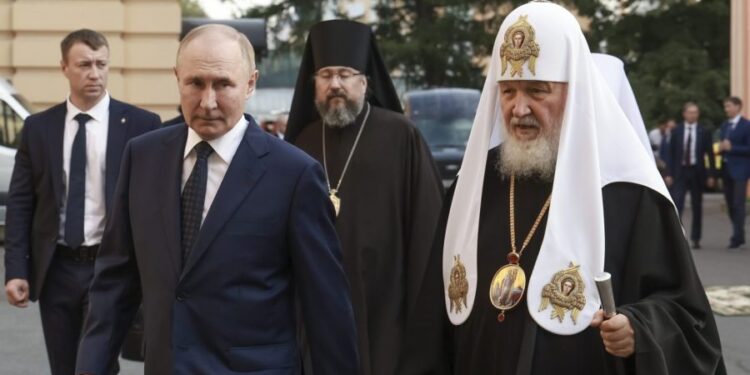
If you want to get completely depressed about Russia’s future, you can’t do better than to read a recent interview by Gideon Rachman of the Financial Times with Alexander Gabuev, director of the Berlin-based Carnegie Russia Eurasia Center.
Gabuev speaks of the economic “mini-boom that Putin is capitalizing on for his war support, and that’s keeping the population actually happy and increasingly supportive of the war effort or at least of this confrontation.”
That leads Rachman to go into the following riff: “Let me just pick up on that idea of a happy Russian population, because one of the things you hear from some people who are bitterly angry with Russia, you know, whether they’re in eastern Europe or Ukraine or whatever, that’s often made me a little bit uncomfortable, is that the Russians, they’re different from us. They don’t care if their kids kill because they get a free car in compensation. And some of what you’re saying sounds a little bit like that.”
Here’s part of Gabuev’s response: “I think that the hangover and the heavy price that Russia will pay for this war will come later on. Now, we are in the stage of the party that people are consuming a lot of booze and they’re happy about that.”
What’s more disturbing — Gabuev’s comparison of Putin’s genocidal war against Ukraine with a booze-fest, or the idea that many, if not most, Russians are happy to get paid well for having their husbands, sons and boyfriends kill and be killed?
If Gabuev is right, and most Russians see the war as a party and the death or wounding of over a half million of their compatriots (not to mention the hundreds of thousands dead and wounded Ukrainians) as the price of living well, then the task before Russian liberals who want to transform their country into a decent society may be impossible.
Even worse, by treating death and destruction as little more than an opportunity to party, Russians have made themselves fully complicit in Putin’s war crimes. They can’t pretend not to know what’s going on. The evidence — close to a million dead and wounded Russians and Ukrainians — is staring them in the face, and they’re not even blinking. If Putin ever goes on trial at The Hague, much of Russia will deserve to be sitting with him behind the docket.
Nor can Russians claim to have been forced to party. Putin provided the cash incentives, but Russians willingly leapt at the opportunity to live well and have a swell time, not even if it costs the lives of others, but precisely because it costs the lives of others. The sad, and utterly depressing, fact is that Russians are partying because of the war, and not despite the war.
This blithe indifference to human suffering is alarming, suggesting that it will take Russians many decades to realize that they must engage in some serious therapy to overcome their love affair with the death and suffering of others. Normally, Christian faith would teach its flock the merits of loving one’s neighbor. Not so in Russia, alas, as the Russian Orthodox Church and its leader, Patriarch Kirill, have been in the vanguard of promoting war and violence against Ukrainians.
Putin and his propaganda machine are of course partly responsible for Russians’ descent into alcoholic war-mongering. When the supreme leader of 25 years glorifies the macho virtues that promote violence, it’s no surprise that his adoring followers pick up on some of his more reprehensible habits.
But there’s no avoiding the far sadder conclusion that Russians’ love affair with killing and death has something to do with their worldview, self-perception, values and culture. In other words, with things of the mind and spirit. Which is to say that the famed “Russian soul” may be far sicker than Russians would be willing to admit.
Is it at all possible for the Russian soul to be fixed? Progressive change is possible, but, given the sticky nature of culture, it could easily take decades if not centuries before Russians are ready to be civilized.
There may be an easier way. The one thing that would undermine Kirill, his gun-toting church and Putin’s fascist regime would be the trauma of losing a war. Such a shock to the system won’t make Russians pacificists overnight, but it could begin to break the grip that Putinism has on their minds and souls.
The defeat would have to be impressive and complete, however. Anything short of that would merely energize Kirill, Putin and Mother Russia to keep on partying as Russians and Ukrainians die.
Alexander J. Motyl is a professor of political science at Rutgers University-Newark. A specialist on Ukraine, Russia and the USSR, and on nationalism, revolutions, empires and theory, he is the author of 10 books of nonfiction, as well as “Imperial Ends: The Decay, Collapse, and Revival of Empires” and “Why Empires Reemerge: Imperial Collapse and Imperial Revival in Comparative Perspective.”







